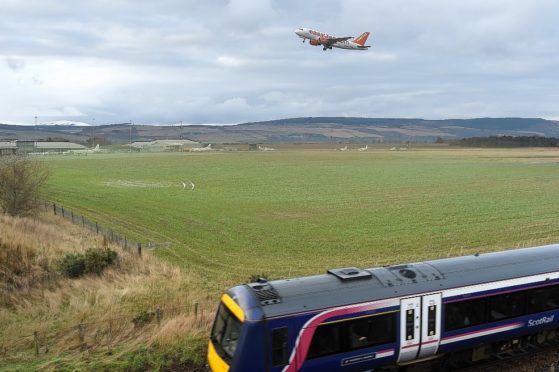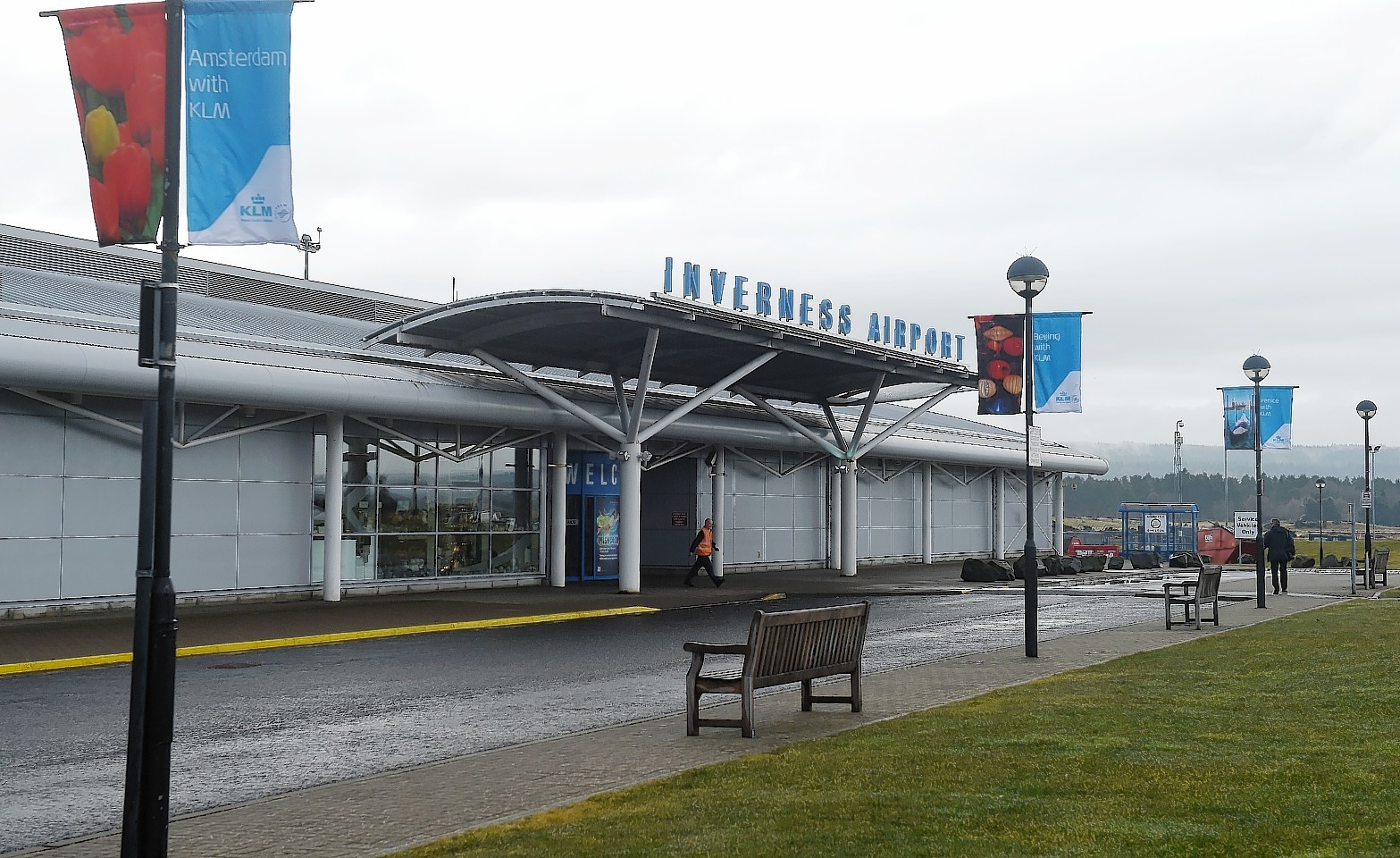Transport chiefs are finally ready to “fire the starting gun” on plans to build one of the busiest rail stations in the north at Inverness Airport.
After more than a decade on the drawing board, the Press and Journal can today reveal the detailed proposals for a new £2million station at Dalcross.
Bosses at transport partnership Hitrans said last night that the scheme would make the entire region -from the islands to Moray – a “more attractive” place to live and work.
Official forecasts have estimated that within 50 years the station will overtake Elgin to become the busiest in the north, after only Inverness.
The proposed location of the development is adjacent to the C1017 airport access road, between the first and second roundabouts after leaving the existing A96, at the southern corner of the airfield.
Under the plans, every train on the Inverness to Aberdeen route will stop at the station.
The platform will be 575ft long – capable of accommodating high speed trains with five carriages and two engine cars, as proposed by operators Abellio for the network.
There will be a waiting area, cycle park, electric car point, bus stop, taxi rank, and barrier controlled access road.
The initial development will include 50 car parking spaces, but that will later rise to 150, while new link roads and cycle paths would be built to connect it to the existing airport access road.
The station will be one mile from the airport terminal by road and, while the plans are still to be finalised, it is hoped a bus connection will be introduced.
A public consultation event will be held at Inverness Airport terminal on Thursday next week, after which the planning application will be lodged.
Hitrans hopes that it can secure planning permission for the project by the end of the summer, with completion of the work pencilled in for December 2018.
The group intends to try to raise about a quarter of the £2million bill from local public sector agencies, and will apply to the Scottish Government’s Scottish Stations Fund for the rest.
The proposals form the first phase of the development, with longer term plans have been discussed for a second platform and loop to allow trains to pass each other.
Frank Roach, partnership manager at Hitrans, said the project was the realisation of more than a decade of work.
“This starts the whole process. The fact we have a public consultation is firing the starting gun. After we have the consultation, we will submit the plans to the planners,” he said.
“It will make the whole area a more attractive place to live and do business in. It will add to connectivity – flights to the islands, which are important for Hitrans. It will enable folk from Moray to access the airport more effectively than they can at the moment.”
A rail station previously operated at Dalcross, opening in 1855 and closing in 1965, and was located near the existing level crossing beside Petty Church.
A condition of the Hitrans planning application will be the closure of that level crossing, on safety grounds, despite many local residents being in favour of its retention.
With plans for 5,000 homes at nearby Tornagrain and the airport business park, Hitrans modelling shows that by 2075 a total of 400,000 passengers are predicted to be using the airport each year.
Mr Roach said: “Ultimately, it’s predicted to become the second busiest station in Highland. The forecast growth, employment, and housing will make this a very obvious site for further development.”

